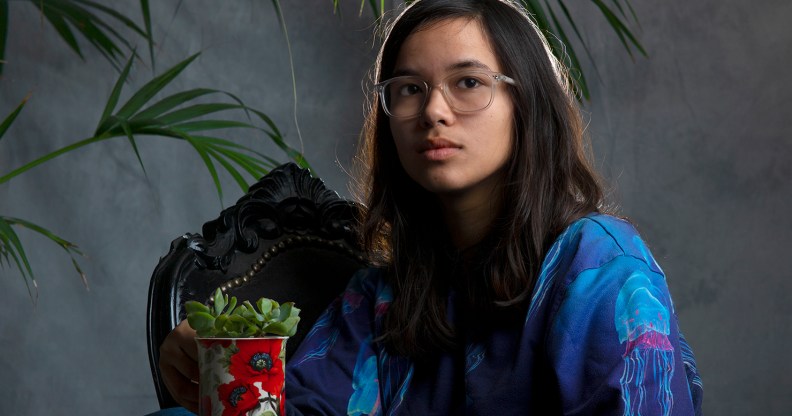Libraries are places where LGBTQ+ young people can find themselves. They must be protected

Pippa Sterk. (Supplied)
On World Book Day, Pippa Sterk, an ambassador for LGBTQ+ young people’s charity Just Like Us, explains why queer people should celebrate their local library.
From BookTok to Bookstagram to BookTube – young people are reading again.
We constantly hear that social media is dragging young people’s attention away from more traditional pastimes, gluing them to their phones. But in the past couple of years, online platforms have been instrumental to creating a surge of interest in literature.
Bookshops are increasingly cashing in on this trend by having dedicated BookTok shelves or displays, or labelling books as ‘BookTok favourites’.
But while bookshops are seeing a renaissance (and dedicated LGBTQ+ bookshops in particular – with at least six new shops popping up around the UK in the last five years), UK libraries are increasingly struggling.
This is such a shame, because libraries are one of the best ways of encountering LGBTQ+ communities through storytelling.
As an ambassador for Just Like Us, storytelling is one of the main ways I engage with other LGBTQ+ people. I go into schools and tell young people the story of how I became confident in asserting my identity. Part of why I do this is because I know that hearing these stories can help others find new ways to think about their own lives.
In much the same way, libraries allow for exploration in ways that algorithms and bookshops just cannot manage.
Though social media platforms might be great at showing you what they think you’ll like, they’re unlikely to show you stories you would have never considered reading. Bookshops might allow for physical browsing, but there is always a profit motive – a successful bookshop is one that sells you as much as possible, often excluding more niche or experimental storytelling.
One of the most powerful functions of literature is to also introduce you to aspects of the world that might be very far removed from yourself. For instance, in my local library I found a book that was about four Greenlandic lesbian and trans friends – it turned out to be one of my best reads of the past year.
Libraries aren’t just about books. They often serve communities too; in London, many public libraries often host language classes, choirs, spaces for the local community to host events, and sometimes even LGBTQ+ reading groups.
Even if your own local library doesn’t run LGBTQ+ events or groups yet, you could set one up – many places are happy to provide a space for people to meet. Quick clips on social media mean we’re literally being asked to judge a book by its cover and hand over our money, instead of engaging in any in-depth discussion.
Most importantly, the process of borrowing and giving back are reminders that we are part of an enduring community that lasts through time.
We are in a place where countless LGBTQ+ people have discovered themselves, and people like them.
If I pick up a copy of Giovanni’s Room from my local library, I can tell by the slightly worn paper and the cracked spine that someone else has enjoyed this story before me.
When I give it back, I do so in the knowledge that someone after me will read it as carefully as I did.
I often imagine the other people reading these books, who they are, what they thought of the stories, and whether the book I’m holding might have been the first time an LGBTQ+ person saw themselves in a story.
How did this story make you feel?

